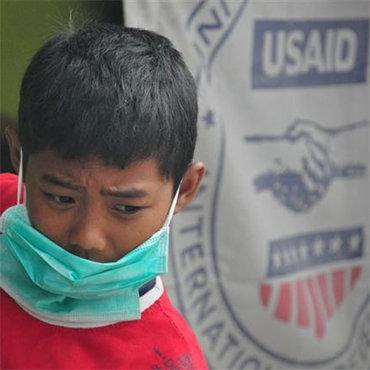USAID innovation contest yields new tools
Smartphone software to increase reliability in disaster areas, a specialized social-media platform and other fresh technologies emerge from competition.

Tools created in contests could become part of USAID's arsenal in disaster relief. (USAID photo)
Smartphone software that keeps communication intact in the face of infrastructure damage received first place for the communication category in the Tech Challenge for Atrocity Prevention contest, which was inspired by a White House initiative. The U.S. Agency for International Development and Humanity United are co-sponsors of this rolling contest, and announced the latest batch of winners on July 10.
Among the winners announced this week for the contest's alert category is a social media platform that extracts information during humanitarian disasters, a radio that allows people without internet to record their voice via phone to be disseminated during a catastrophe and a mobile tool that acts as a virtual production studio to help witnesses report on crises.
"The results of the Tech Challenge demonstrate that there is a great deal of opportunity at the intersection of technology and human rights, particularly in how technology-based tools can aid communities and human rights advocates by improving the flow of information in conflict-afflicted areas," said Randy Newcomb, president and CEO of Humanity United.
The Tech Challenge is the latest of several USAID efforts to incubate technology-driven solutions for international aid, disaster recovery and crisis prevention. The agency has an office devoted to mobility, and has provided valuable geodata to encourage open-source mapping of crisis zones.
Among the other Tech Challenge winners area a tool that detects "conflict material" during the manufacturing of products and an app that allows medical professionals to capture potentially incriminating medical evidence from victims are the previously announced winners of two other categories.
The model category of the contest, which calls for tools that can help identify factors of community-level risk so they can be addressed, is still open.





